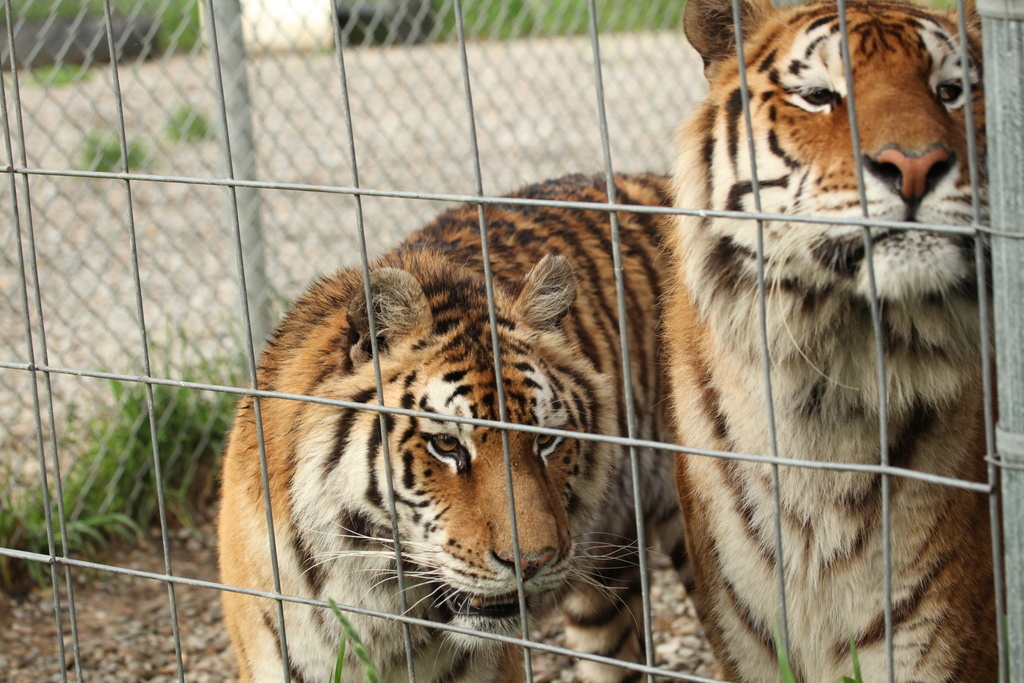Updated: September 11, 2020
IFAW announced on July 15, 2015 that Kentucky passed an amendment that would make certain types of exotic animals illegal pets. The initiative is one supported by IFAW and other animal welfare groups.
Prior to the amendment, residents were able to apply for licenses to own exotic animals as pets. Kentucky’s change in regulation now prohibits pet ownership of dangerous animals such as elephants, lions, bears, tigers, rhinos, leopards and certain primates. People who own exotic animals prior to the amendment were allowed to keep them as pets but were prohibited from breeding them or obtaining new ones. The ban does not apply to circuses or zoos.
What kinds of exotic animals are illegal to own as pets in Kentucky?
Kentucky bans exotic pets for two reasons – they are environmentally injurious or inherently dangerous. The following list notes which animals are banned in Kentucky and why they are illegal to own. In certain locales, local governments may have additional restrictions.
Animals considered environmentally injurious
- Baya weaver (Ploceus philippinus)
- Blackbirds (Genus Agelaius), except native species
- Cape sparrow (Passer melanurus)
- Cowbirds (Genus Molothrus), except native species
- Cuckoo (Family Cuculidae), except native species
- Dioch or red-billed quelea (Quelea quelea)
- European blackbird (Turdus merula)
- Fieldfare (Turdus pilaris)
- Flying fox or fruit bat (Genus Pteropus)
- Fox (Genus Vulpes and Alopex lagopus)
- Gambian giant pouched rat (Cricetomys gambianus)
- Giant, marine, or cane toad (Bufo marinus)
- Hawaiian rice bird or spotted munia (Lonchura punctulata)
- Jack rabbit (Genus Lepus)
- Java sparrow (Padda oryzivora)
- Madagascar weaver (Foudia madagascariensis)
- Mistle thrush (Turdus viscivorus)
- Monk or Quaker parakeet (Myiopsitta monachus)
- Multimammate rat (Genus Mastomys)
- Mute swan (Cygnus olor)
- Nutria (Myocastor coypus)
- Prairie dog (Cynomys spp.)
- Raccoon dog (Nyctereutes procyonoides)
- San Juan rabbit (Oryctolagus cuniculus)
- Sky lark (Alauda arvensis)
- Song thrush (Turdus philomelus)
- Starling (Family Sturnidae) including pink starlings or rosy pastors (Sturnus roseus), except for Indian Hill mynahs (Gracula religiosa)
- Suricate or slender-tailed meerkat (Genus Suricata)
- Tongueless or African clawed frog (Xenopus laevis)
- Weaver finch (Genus Passer), except Passer domesticus
- White eyes (Genus Zosterops)
- Wild European rabbit (also called the San Juan Rabbit) not distinguishable morphologically from native wild rabbits
- Yellowhammer (Emberiza citrinella)
- A member of the following families:
- Suidae (pigs or hogs), except for domestic swine
- Viverridae (civets, genets, lingsangs, mongooses and fossas)
- Tayassuidae (peccaries and javelinas)
Animals considered inherently dangerous
- Alligators or caimans (Family Alligatoridae)
- African buffalo (Syncerus caffer)
- Bears (Family Ursidae)
- Cheetah (Acinonyx jubatus)
- Clouded leopard (Neofelis nebulosa)
- Crocodiles (Family Crocodylidae)
- Elephants (Family Elephantidae)
- Gavials (Family Gavialidae)
- Gila monsters or beaded lizards (Family Helodermatidae)
- Hippopotamus (Hippopotamus amphibius)
- Honey badger or ratel (Mellivora capensis)
- Hyenas (Family Hyaenidae), all species except aardwolves (Proteles cristatus)
- Lions, jaguars, leopards or tigers (Genus Panthera)
- Old world badger (Meles meles)
- Primates, nonhuman (Order Primates)
- Rhinoceroses (Family Rhinocerotidae)
- Snow leopard (Uncia uncia)
- Venomous exotic snakes of the families Viperidae, Atractaspididae, Elapidae, and Colubridae, except for hognose snakes (Genus Heterodon)
- Wolverine (Gulo gulo)
- Hybrids of all species contained in this list

Exotic pet laws nationwide
There are an estimated 10,000 tigers being kept as pets in the United States alone, more than twice the number left in the wild worldwide. There is no federal law that prohibits owning a tiger or lion as a pet. IFAW has been working state by state to strengthen laws regarding exotic pet ownership. Since 1990 pet tigers have killed 11 people and mauled 60 others. “Exotic pet ownership is out of control in the United States and stronger laws and regulations – like the one Kentucky just passed – are the first step in controlling this situation,” said Sarah Wry, Program Manager for IFAW.
Take action to protect endangered wildlife
IFAW works to improve the welfare of wild and domestic animals throughout the world by reducing commercial exploitation of animals, protecting wildlife habitats and assisting animals in distress. Learn how you can help support our mission below!
Related content
every problem has a solution, every solution needs support.
The problems we face are urgent, complicated, and resistant to change. Real solutions demand creativity, hard work, and involvement from people like you.